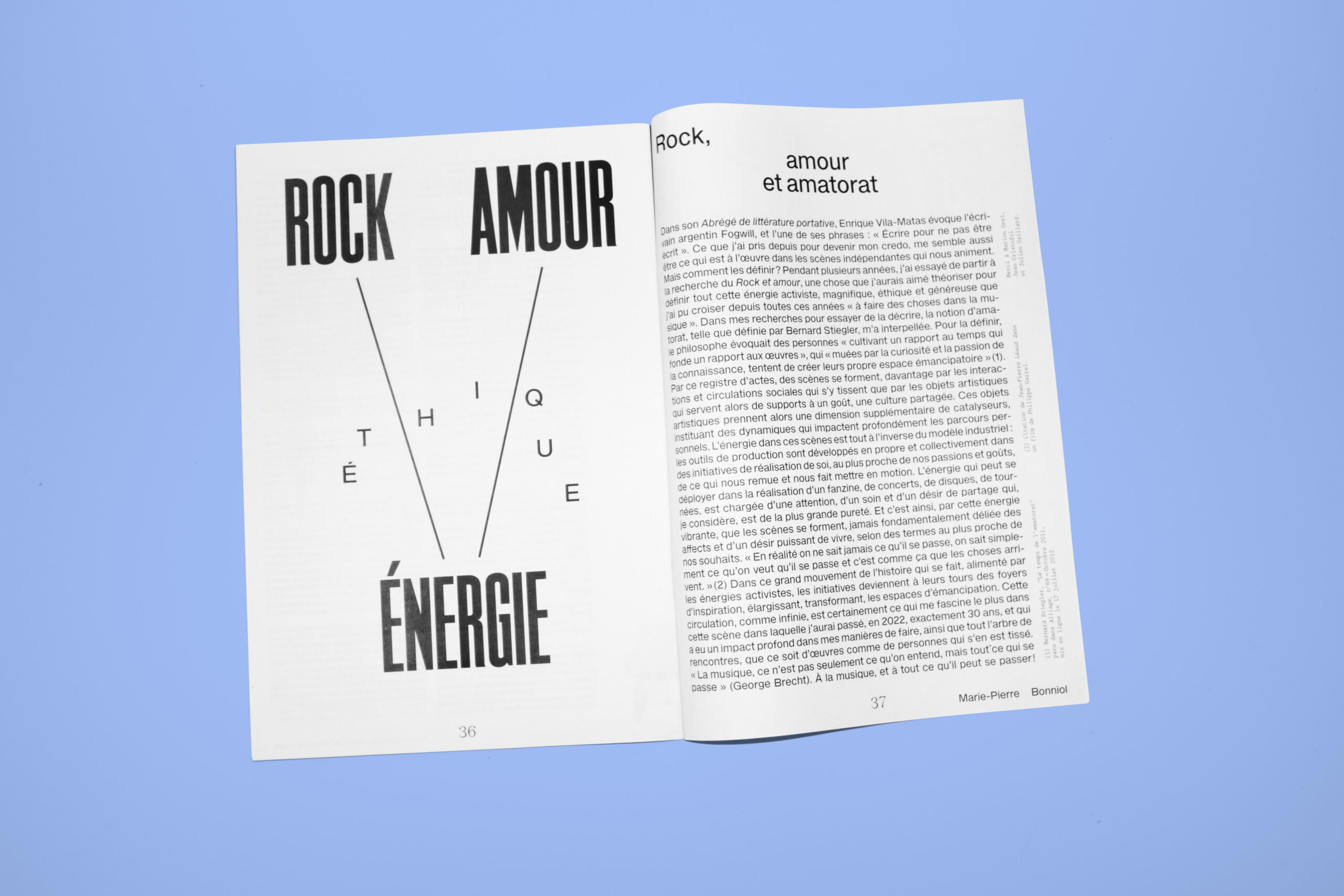ROCK and LOVE & the AMATORAT

In his Brief History of Portable Literature, Enrique Vila-Matas cites a maxim by the Argentinian writer Fogwill: “I write to avoid being written about.” What is suggested in this declaration, which I have since adopted as my credo, seems likewise at work in the various independent scenes that animate the passions of those of us engaged there. But how is one to characterize these scenes, with their animations of affect and care? For some years, I set out in search of “rock and love,” something that I would have liked to theorize in order to define this whole incredible energy – at once activist, magnificent, ethical, and generous – that I encountered throughout those years of “doing things in music.” In my quest to describe it, the notion of the amatorat, as elaborated by the philosopher Bernard Stiegler, offered a special challenge and opportunity for thought. With this term, Stiegler sought to evoke a mode of being, infused with desire, among people who “cultivate a relationship to time in such a way that it founds a relationship to works,” which is to say, among lovers of art and music who are “driven by curiosity and the passion for knowledge and thereby create their own emancipatory space.” (1) Through this register of acts, communities come to be formed – art scenes, music scenes – as much by the interactions and social circulations that pulse there as by the artistic objects that serve to support a shared taste and culture. But we can also see that these artistic objects assume a supplementary dimension as catalysts there, setting in motion dynamics that will have a profound impact on the personal journeys each of us takes. Notably, the energy animating these scenes is very much the opposite of energy generated according to an industrial model: here, the tools of production are developed in initiatives of self-realization that are both collective as well as specific to each participant in the scene, deriving from our particular passions and tastes, from what moves us and sets us in motion. The energy that can be deployed in the production of a fanzine, in concerts and recordings and tours, is full of an attentiveness, a care, and a desire to share which represent a greater purity, in my view. And in this way, through this vibrant energy, scenes come to be constituted as scenes of engagement, as communities of people devoting their time, interest, and creative energy – as artists, as audience members, as activists – without it ever being fundamentally decoupled from affects and the powerful desire to live according to the terms closest to our wishes. “In reality you never know what’s going on, you just know what you want to happen and that’s how things happen.” (2) In this great movement of history taking place, fueled and sustained by activist energies, initiatives become focal points of inspiration, enlarging and transforming the spaces of emancipation. This strange and wondrous circulation, coursing as if without end, is certainly what fascinates me most in this scene in which I have now spent exactly 30 years and which has had a profound impact on my ways of doing things, to say nothing of the whole body of encounters, with works and with people, nourished by it. “Music isn’t just what you hear or what you listen to, but everything that happens” (George Brecht). To the music, then, and to everything that can happen!
Marie-Pierre Bonniol, translated by Robert Hughes.
(1) Bernard Stiegler, “Le temps de l’amatorat,” Alliage 69 (October 2011). Posted 17 July 2012.
(2) A quote from Jean-Pierre Léaud, appearing in a film by Philippe Garrel.
(*) The author takes this opportunity to express her special gratitude to Marion Orel, Jean Cristofol, and Julien Gaillard.
Original publication of the text in French: fanzine Ventoline #3, July 2021.
This english version is published at the occasion of the Bookleg programme of Bloc Books at Tennis Bar in Berlin, June 2nd 2022.
